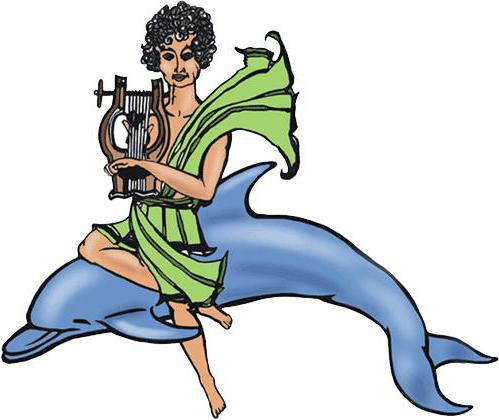When creating their works, writers and poets often turn to the myths of ancient Rome. Thanks to them, they address important issues, allegorically talk about significant events. A.S. Pushkin also turned to myths when creating his works. Among them is the myth of Arion.
In this article we will consider this ancient legend, and also we will analyze the poem "Arion" to find out what semantic load it carries. It is no coincidence that Pushkin turned to the legend when creating this poem.
The Arion Myth
This is a story about a famous musician. He was so talented that he managed to make a fortune. Once he participated in a musical competition in Sicily, where there were other famous performers. After this event, he needed to return to Corinth, his hometown. The musician decided to return across the sea. He got on a ship carrying greedy pirates. Learning about the wealth of Arion, they wanted to take possession of his property and kill him.
When the pirates were about to throw the musician on board, he asked for an opportunity to play him the last time before his death, and they agreed. The sounds of the lyre spread across the sea. They were so bewitching and beautiful that dolphins sailed to the ship and began to play with the waves.
Pirates were struck by this picture. They decided that Arion's music has power over those who listen to him. Fearing that they, too, would fall under these spells, the sea robbers hastened to crack down on the guy and threw him out of the ship. Arion fell on a dolphin, and he rescued him, carrying on his back to the shore. The gods decided to perpetuate this miracle. They turned into the constellation the lyre of Arion and the dolphin that saved him.

Such is the myth that A. S. Pushkin used to create the work under consideration. The content and analysis of the poem “Arion” will show us how different the poet’s creation is from the legend. We will also consider the historical events in connection with which this work was written.
The content of the poem "Arion"
The narration in the work is conducted from the mouth of the singer. He tells how he and other people sailed on a small wooden boat. Someone strained the sails, someone rowed the waves with oars, the feedman ruled the boat. And the singer, meanwhile, was singing nonchalantly songs.
Suddenly, a whirlwind began, and all crew members, except the narrator, died. He was washed ashore. Despite this, the singer continues to sing, and dries his wet clothes under a rock in the sun.
As we see, the content of Pushkin’s poem is different from myth. What is the reason for this, we learn by analyzing the poem "Arion".
Historical events related to the work
Before analyzing the poem "Arion", the plan is to familiarize yourself with the time when it was written. After all, it was certain historical events that prompted the poet to create this work.
The poem was written in 1927, and in the 1925th, on December 14th, tragic events occurred. On this day, a poorly prepared uprising took place. It was organized by the Decembrists, who lacked organization, rigidity, cohesion to solve their task. They wanted to overthrow the government so that the autocratic-serfdom law ceased to exist. They have been preparing for this event for many years. Among them were friends of Pushkin. The poet himself also shared their views. He was for freedom and equality. Pushkin spoke about this more than once in his works and was sent to the link in this connection.
The uprising was crushed, and the rebels executed.
Analysis of the poem "Arion"
Having examined the legend used by Pushkin, the content of the work we are considering, and the historical events that prompted the poet to write him, we can note several points. Firstly, the author substantially changed the myth. Secondly, the myth was used due to censorship.
An analysis of Pushkin’s poem A. S. Arion shows that the singer in the work is the author himself. The people who sailed with him are his like-minded Decembrists. In the poem, they, as in real life, died, and Pushkin remained. After these upheavals, the poet continues his work: he continues to sing freedom, in his own way fights against autocratic power. Just like the singer depicted in the poem, who sings the old songs, despite the crash.
A brief analysis of Pushkin's poem "Arion" showed us that the poet was a like-minded Decembrist. After the death of the fighters for freedom and equality, he did not shut up, but continued his mission through creativity.